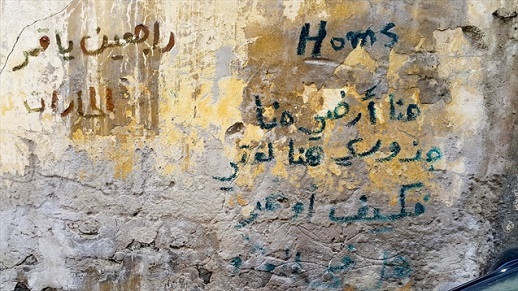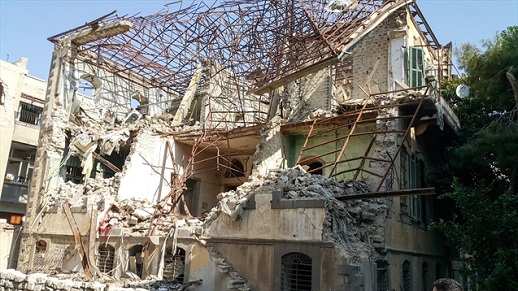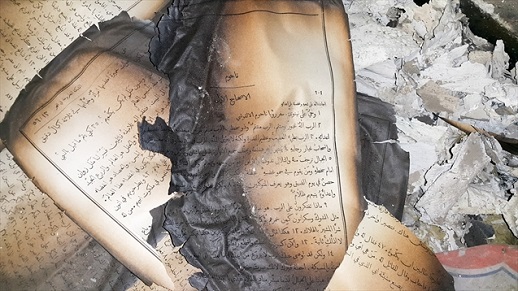
Open Doors International
Time has almost faded the message written on a church wall in Homs by someone who, like thousands of others, presumably had to flee the city quickly for safety or survival.
The Syrian city, 166km north of Damascus, was soon taken over by Islamic fighters. Fierce fighting made living in the city virtually impossible.
The unknown writer, inspired by a famous Syrian poem by Nizar Kabani, marked the wall with the words, “Here is my land. Here are my roots. Here is my language. How it …” as the writing then fades away.
But back they have come. Gradually they have been returning to their homes in Homs as the Syrian government has been claiming back more areas of the province by the same name over this autumn.
Those who came back have found homes struck by explosives and almost completely destroyed, while other houses were damaged but not beyond repair.

Open Doors International
Nesreen* lost her husband to cancer before the war – which has been going on for five years now since 2011. During the war her son was kidnapped and later killed. Grief is etched on her face, and her voice strains under the stress of sorrow and loss. Her house was almost totally destroyed by fire.

Open Doors International
A Syrian Christian now living in the UK is helping to bring more hope for the future to his native land.
Rami (who can’t use his real name for security) has spearheaded ‘Hope for the Middle East’, a campaign by Open Doors International, a global Christian NGO which, amongst other aims, plans to help restore 40 houses in Homs and in Maaloula. (This is a historic Christian town where Aramaic is still spoken).
‘Hope for the Middle East’ is a seven-year advocacy campaign on behalf of Christians in Syria and the Middle East.
“We call it the One Million Voices petition and we want to present it to the new UN Secretary General on 20 June 2017, World Refugee Day” says Rami.
*Pseudonym used to protect identity